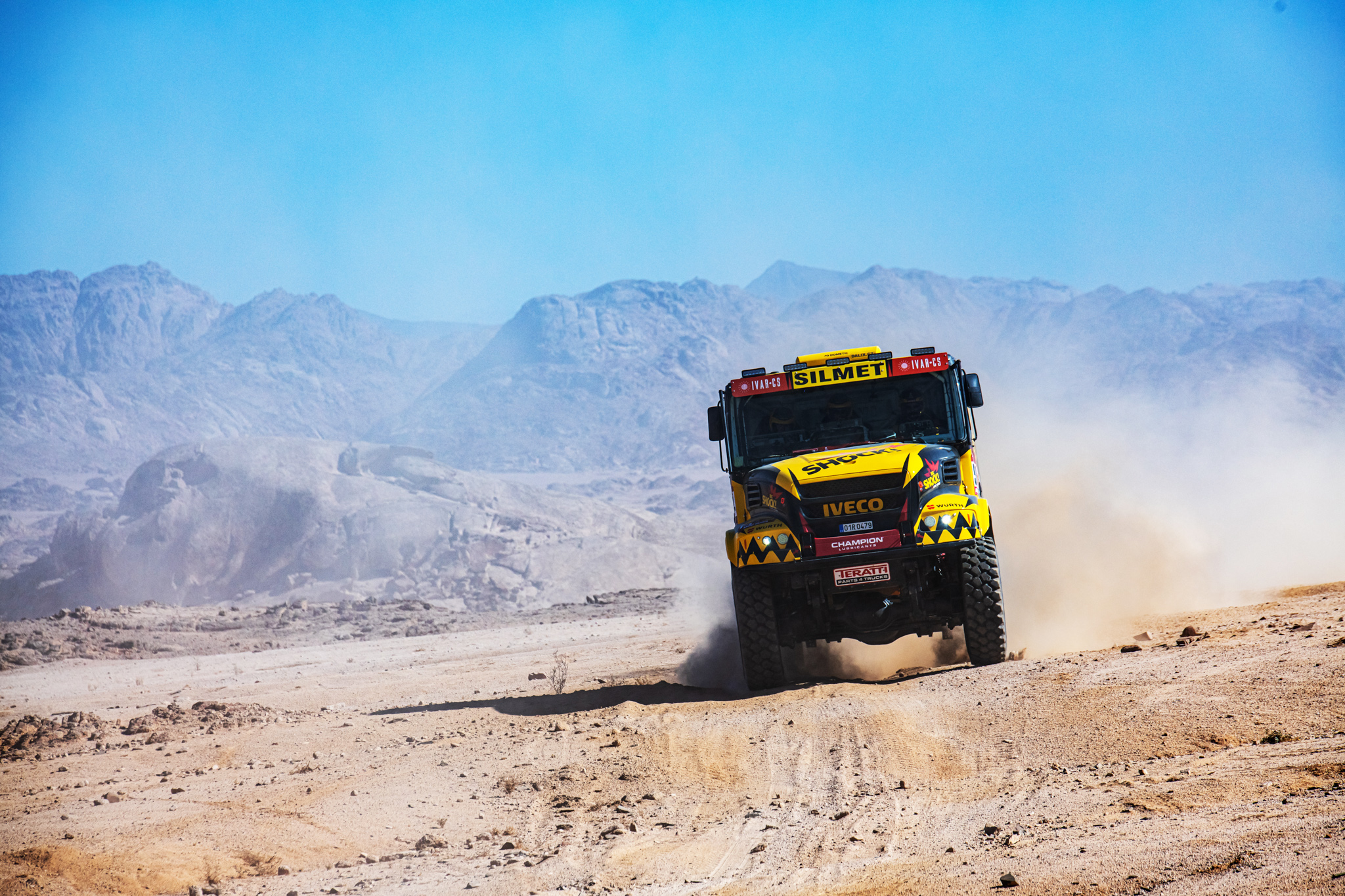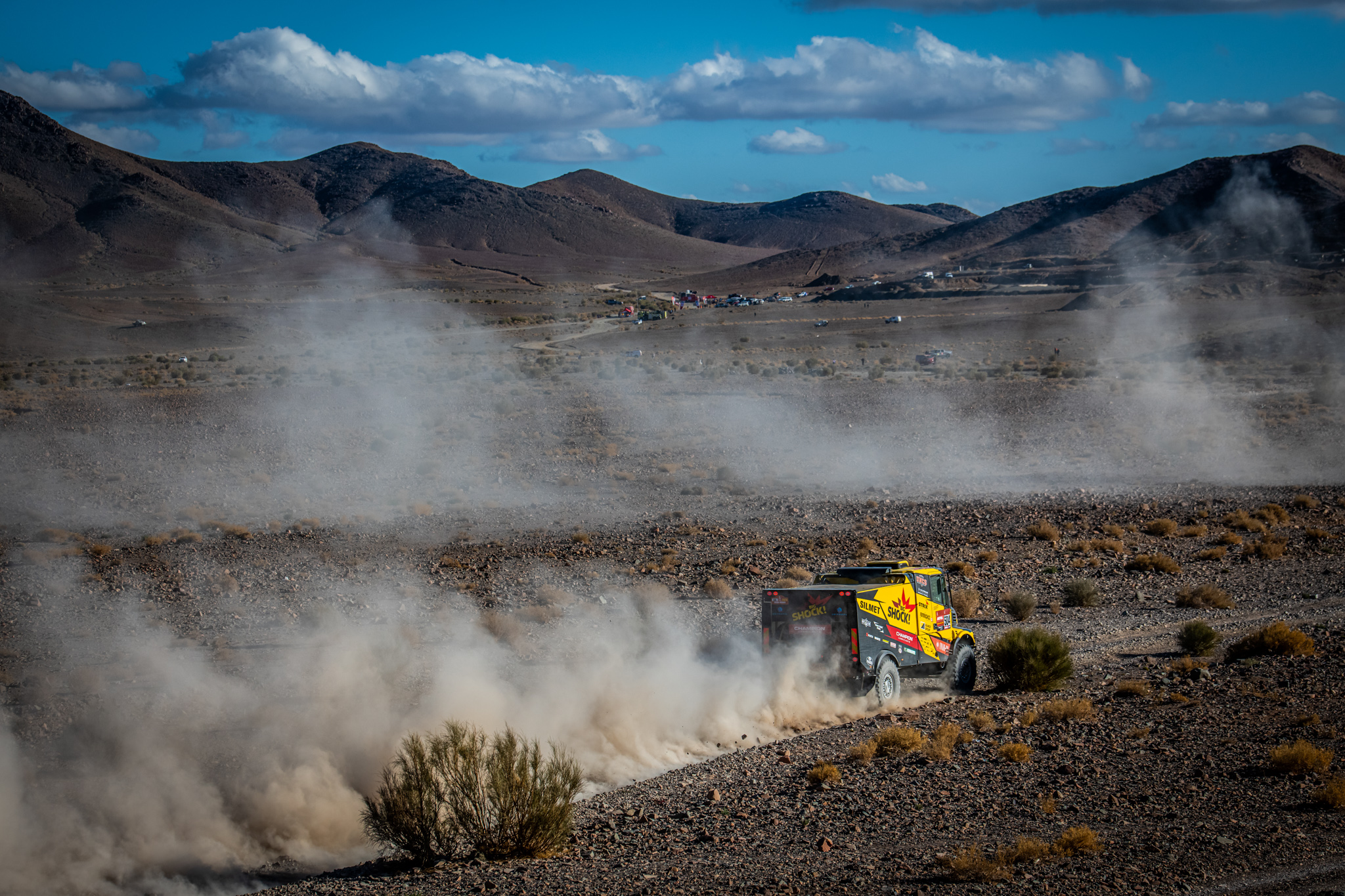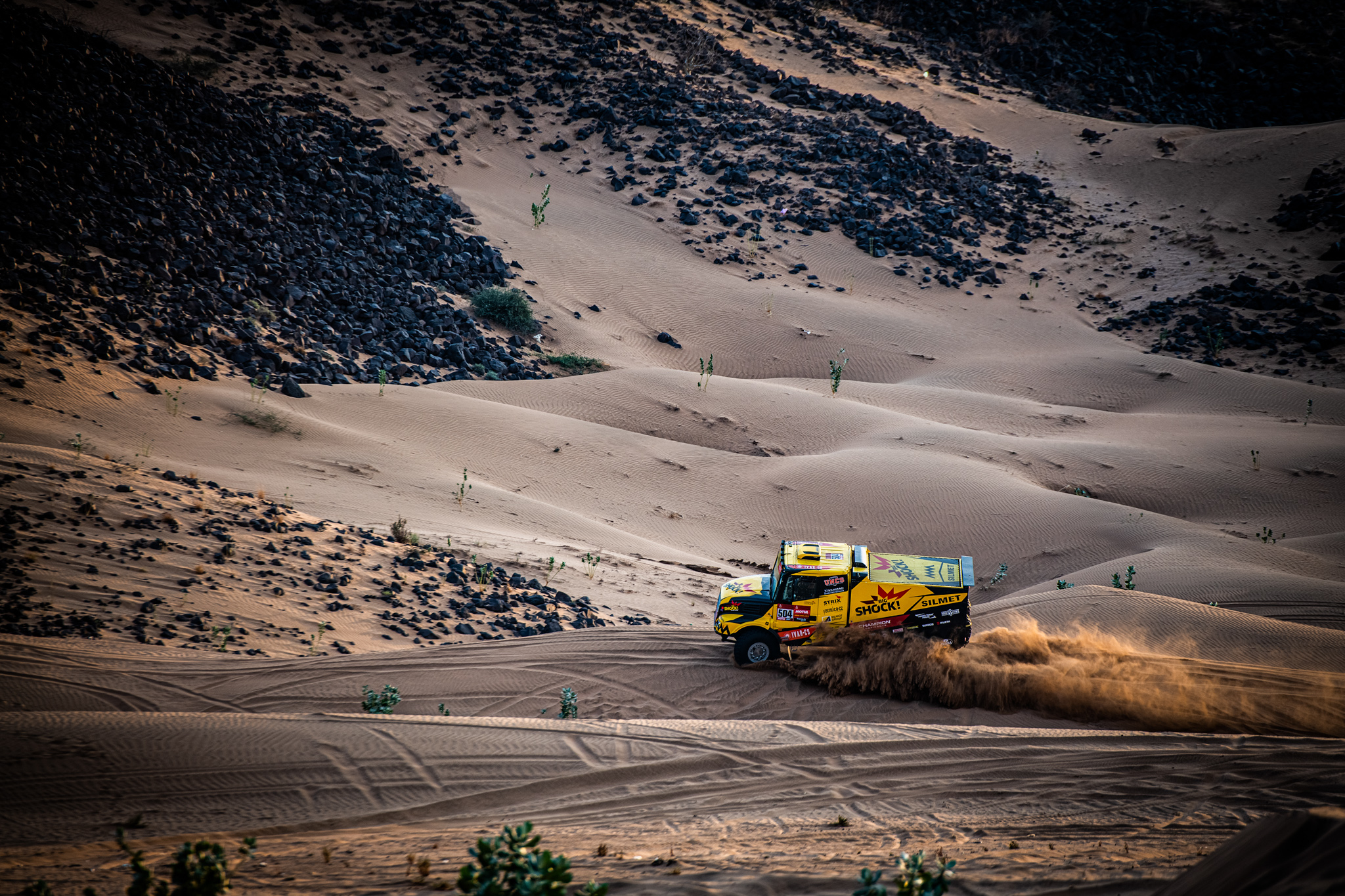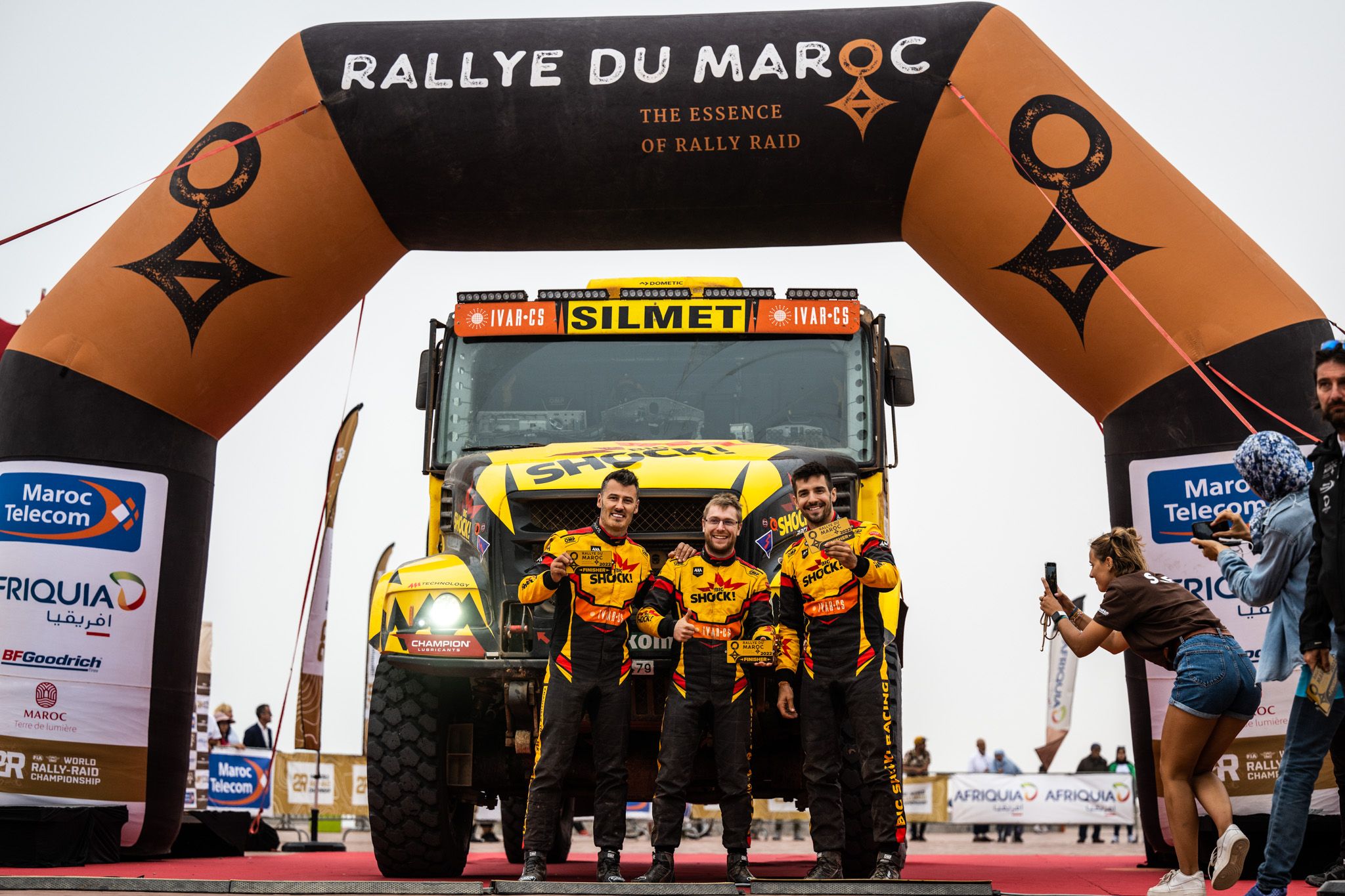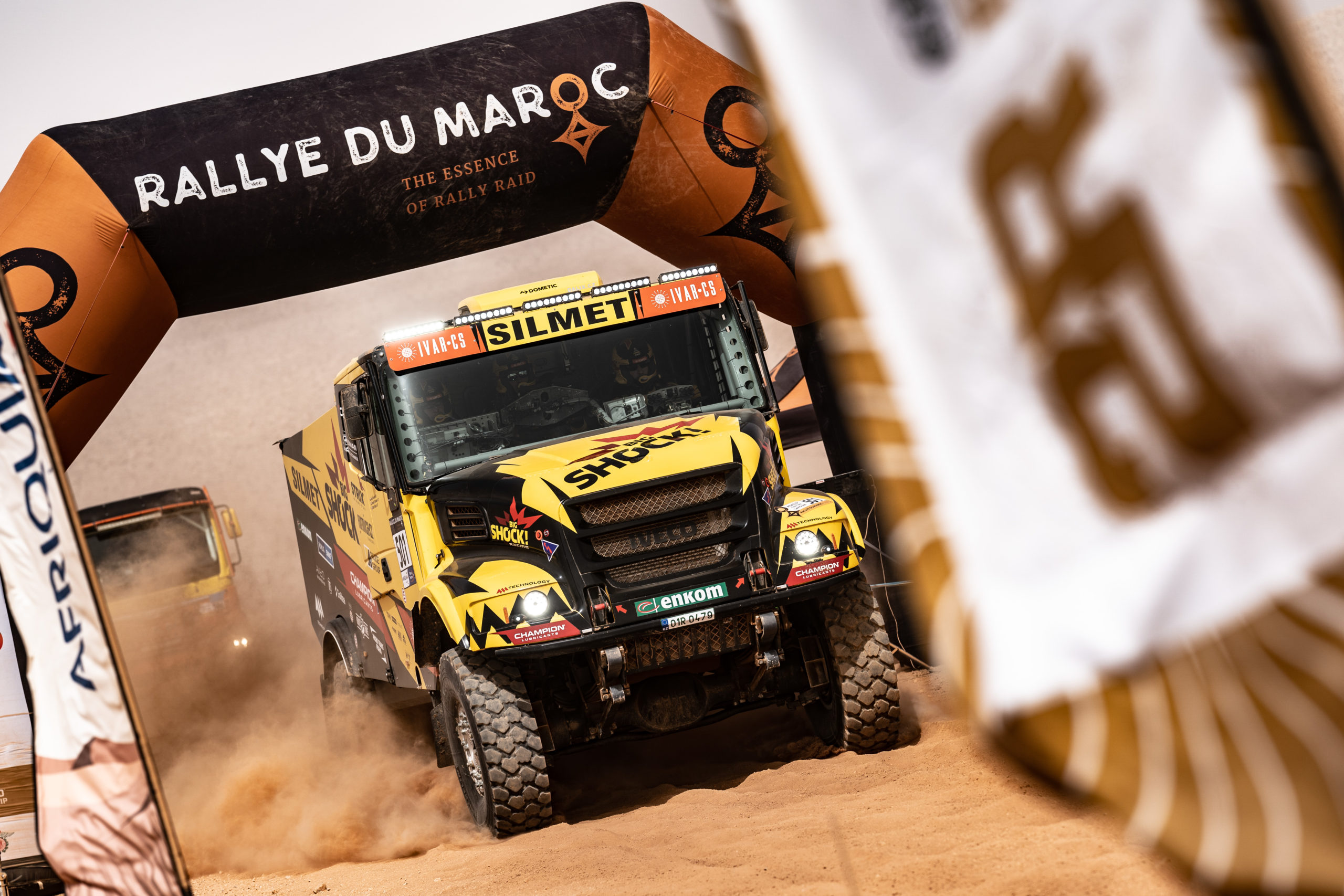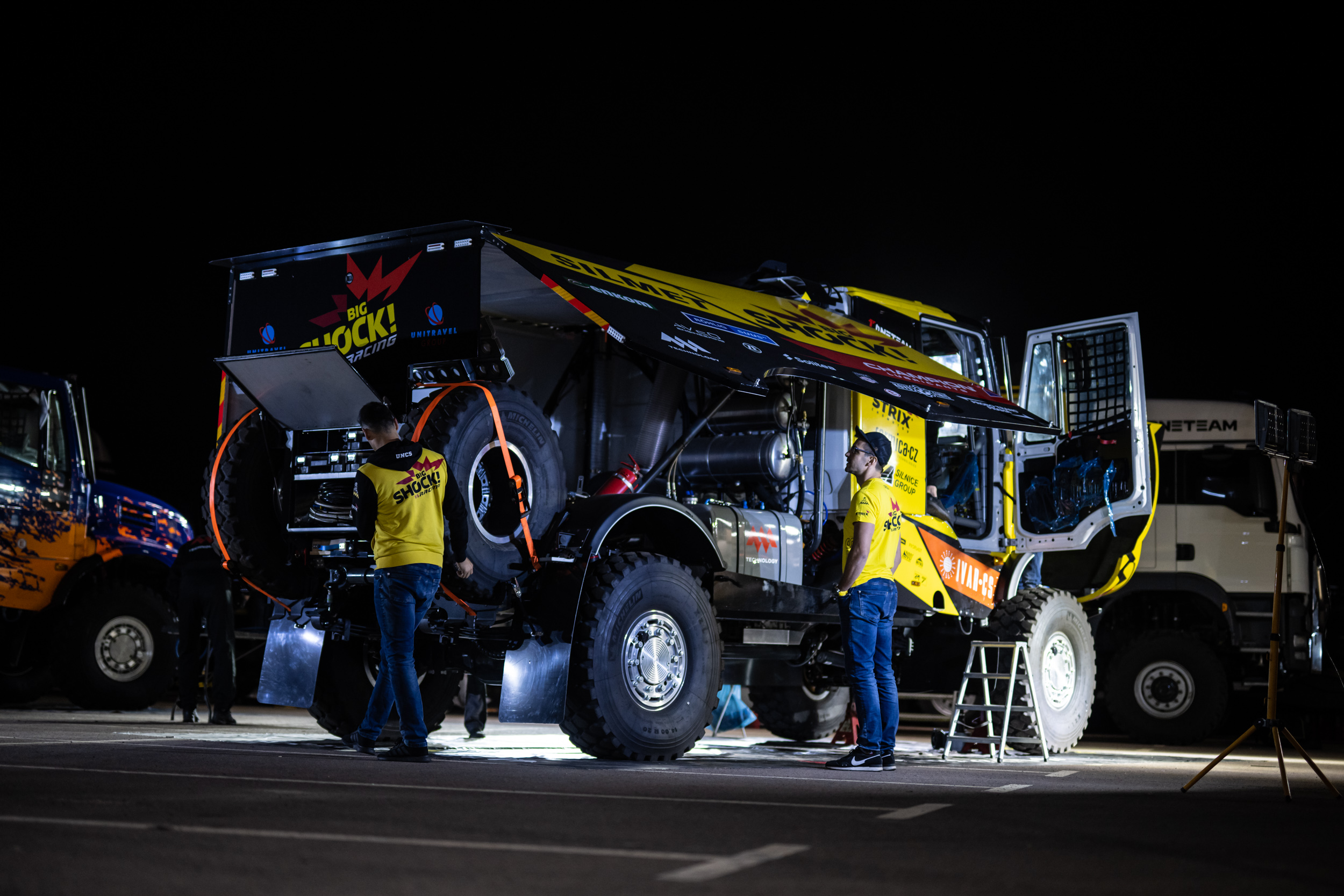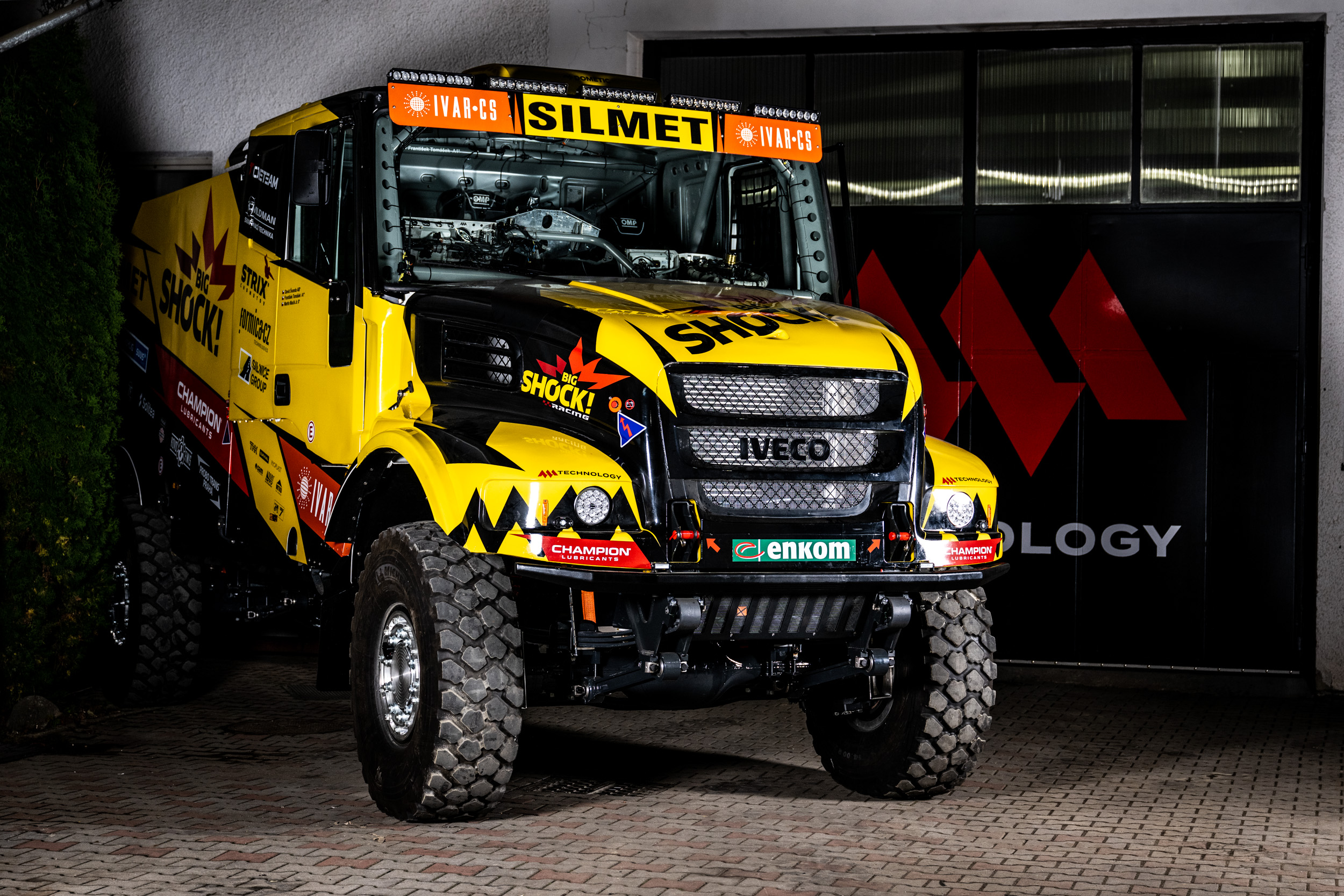Dakar 2021 is approaching. Martin Macik, Frantisek Tomasek and David Svanda, the truck crew of the Big Shock! Racing team received a message that the organizers of Dakar ranked them among the priority crew, which means that they will be more closely monitored during the race. This is another novelty in the current turbulent development. Despite the circumstances, however, the Big Shock! Racing team remains stable, not planning any major changes, relying on the well-tested and proven vehicles and crew members. Throughout the whole year, the Sedlcany workshops have been busy with making improvements on Charles, the Iveco truck which will set off for Dakar for the second time in January, with a new automatic gearbox and the assigned number 503. The cabin crew remains the same and so does the team of seasoned mechanics. Nevertheless, the upcoming rally cannot be compared to any of the previous seasons. “Unexpected changes led the team to adjust the testing plan, however, they also brought an extra time that we spent working on the truck. Even thanks to these circumstances, just a few days before handing Charles over for his journey to Jeddah, we are proud to say that the technical preparation has never been more thorough,” David Svanda, the on-board mechanic, reported. All twenty members of the Big Shock! Racing team can leave for Dakar 2021 knowing that they did their best to try and improve upon this year’s 5th place result.
Priority Czech crew: electronic roadbook and cameras in the truck cabin
Martin Macik has already received information from the organizers that members of his crew will be included among the priority drivers. These should have assigned numbers 500-508 in the truck category and will be monitored more closely during the race, for example by cameras in the cabin or electronic roadbooks. “I’m curious about the electronic roadbook, so far I’ve only seen it on the paper and I have a few questions. With a paper roadbook, I was used to having it in my hands at all times, but the electronic one will be fixed – I need to know I will be able to see it well even if when we are flying through the air,” the navigator Frantisek Tomasek said. The crew learned more at today’s press conference. It was gratifying to learn that the Czech Republic is once again one of the countries with the strongest representation. The declassified route, which includes 12 stages, will lead through places, some of which the competitors already know from this year. This time, however, they will go in the opposite direction and will have 4767 kilometres to cover. There are three difficult stages to complete at the end and there seem to be fewer crossings, which the teams will appreciate. Upon learning about the news, the driver Martin Macik said: “The route looks good. We want the next year to be the most challenging. We want it to be rough technically, physically and navigationally. We enjoy it when Dakar is as it should be and according to the latest reports, it looks like we might just get our wish.”
The team caravan heads to the port of Marseille
Everything is ready. A few days ago, the last modifications to the team truck were completed. After both Macik, Sr. and his son completed a test drive, the father said: “I have never driven anything faster.” To all who know the team leader and know that he is not the one to overpraise, it was clear that Charles is doing really well. The truck also got assigned the starting number 503, successfully passed the VIS, navigator Frantisek Tomasek adjusted the roadbook holders in the cab, and Charles was ready to go. A new Liaz, the last model to leave the production line, has been added to the team fleet. It will carry spare parts for the Big Shock! Racing team and also for the chassis of a Dutch car, made in Sedlcany workshops for the driver Maurik van den Heuvel. All tools were packed into the service MAN and each member of the team stored their luggage with equipment for the challenging 14 days in January in the camper truck. On Monday, the team caravan departs in the direction of Marseille, where they board a ferry to Jeddah. This time, the classic technical inspections will not take place in the port. The organizers will take care of these themselves and will only tell the teams what needs to be dealt with in Jeddah in January.
So far, everything is going smooth and looks promising; the technology is ready, all team members have found their passports, they have undergone the obligatory flu vaccination and they are looking forward to Dakar!

